Wondering whether you should be eating less sugar?
Confused about how sugar affects your body?
We get it.
Many of us have a complicated relationship with sugar, which stems from the different narratives created about it over the years.
We grew up watching our parents douse their tea with spoonfuls of sugar and eating homemade sweets that were integral to any festive occasion. Sugar is an intrinsic part of how we mark a significant moment – celebrating anything joyful requires something meetha (sweet)!
On the other end of the spectrum, it’s been drilled into our minds that sugar is bad for us and we should avoid it at all costs.
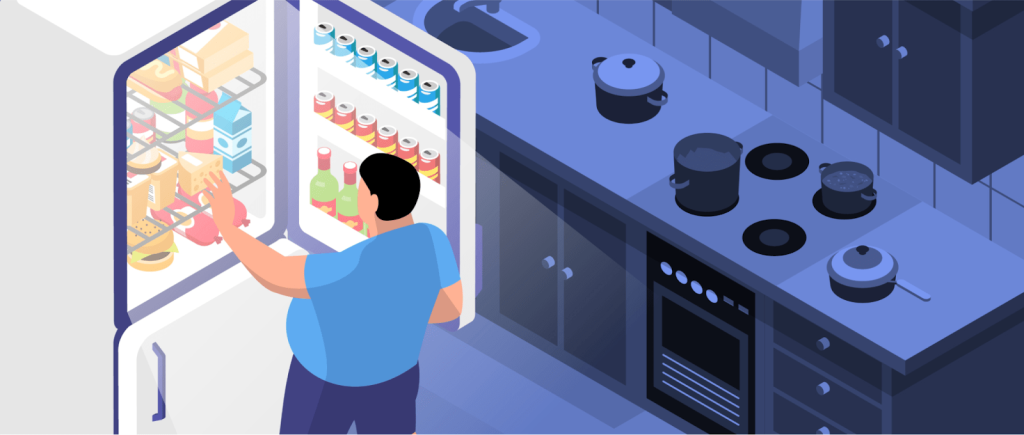
So, How Do We Make the Right Choice About How Much Sugar To Eat?
While we like to think of sugar as the bad guy, the fact is that our bodies need sugar. Glucose, the body’s main energy source, is produced due to the breakdown of sugar. Glucose in the blood is transported to our cells, providing them with fuel to carry out different essential functions.
Since sugar also triggers the release of feel-good neurotransmitters (chemicals) like dopamine and serotonin in the brain, it can serve as an instant mood booster. So, when you feel a bit low mentally, or you’re upset about something, and find it hard to focus, sugar could be the answer.
The truth is, natural sugars are a part of many foods, and the body does need sugar to fuel the cells, so why does sugar get such a bad name?
It’s a simple carbohydrate that can cause a whole host of complex problems for anyone who wants to eat healthier – at least, that’s the common assumption. But let’s roll back for a second and dive into WHY sugar is considered a harmful component of our diets! And for this, we need first to understand the different types of sugars and what they mean.
In this article, we’ll help you get the answers to 5 critical questions about sugar:
• How does the body absorb sugar?
• What are the different types of sugar?
• What happens to your body when you eat sugar?
• Is sugar truly addictive?
• What happens when you stop eating sugar?
Here’s What Literally Happens When You Eat Something With Sugar in It
When you consume sugar, enzymes in your small intestine break down sugar into glucose. The glucose is released into your bloodstream and transported to tissue cells in muscles and organs, where it is converted into energy. When your blood sugar rises, cells in the pancreas release insulin. This hormone helps the body absorb glucose from the blood and lowers the blood sugar level back to normal.
If your blood sugar drops too low, the level of insulin decreases and other cells in the pancreas release glucagon, which causes the liver to turn stored glycogen back into glucose and release it into the blood. This brings blood sugar levels back up to normal.
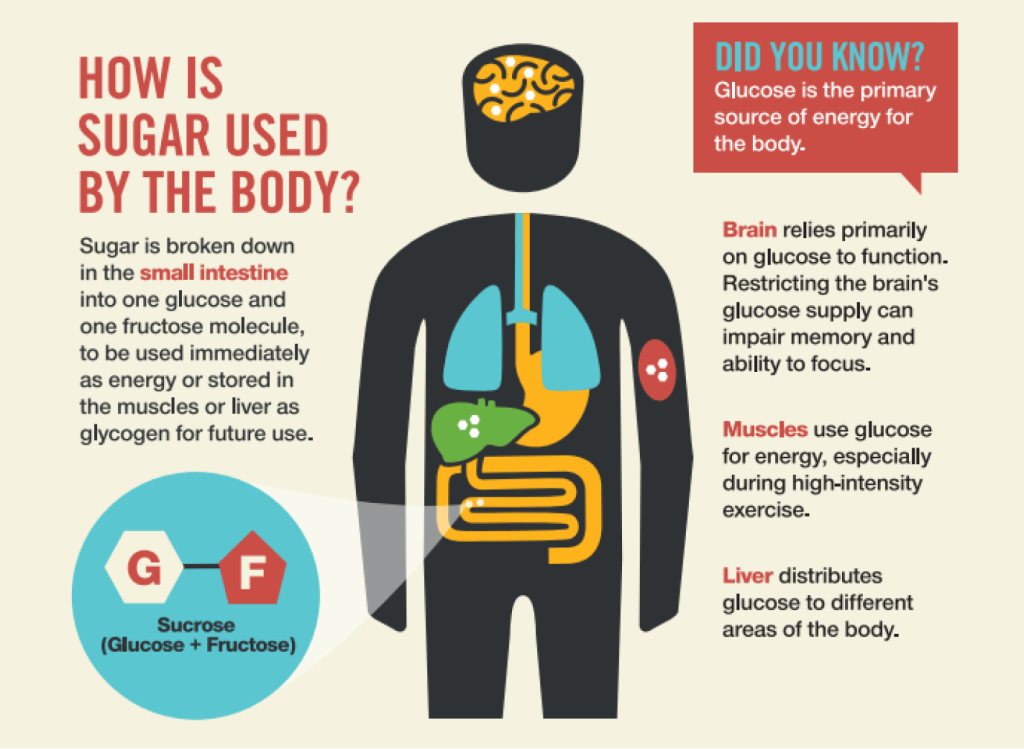
What are the Different Types of Sugar?
For most of us, sugar is a sweetener that goes into tea, coffee, or on top of doughnuts! But there’s actually more to it than that.
Want to know an interesting fact? There are 56-61 names for sugar (based on which publication you read). You’ve probably heard of the most common ones like brown sugar, cane sugar, high fructose corn syrup, or honey. Most sugars also fall into two broad categories – natural or refined (sometimes referred to as added sugars).
More on that later.
Let’s Focus on the Four Most Common Types of Sugars and Their Sources
Glucose
Commonly called blood sugar
Glucose is widely present in many foods and is the most prevalent type of sugar found in plants. It is the sugar that our bodies use for fuel. In fact, most of the sugars we consume are converted into glucose, regardless of their form.
Lactose
Commonly called dairy sugar
You’ve probably heard of lactose intolerance. The most common assumption is that it’s a milk or dairy allergy, but it’s actually the body’s inability to break down lactose, a type of sugar found chiefly in milk or related dairy products.
Sucrose
Commonly called table sugar
Sucrose, a naturally occurring sugar derived primarily from cane, is in various amounts in fruits, vegetables, and nuts. This is your regular white sugar. In baking or cooking terms, it’s called granulated sugar, and it’s widespread in most processed foods. Caster sugar and confectioner’s sugar (let’s call them cousins of granulated sugar) are 100% and 97% sucrose, respectively.
Fructose
Commonly called fruit sugar
Fructose is generally found in fruits, honey, and some root vegetables and is the sweetest of all naturally occurring sugars. Fructose is absorbed directly into your bloodstream during digestion and has no impact on insulin production or blood glucose levels.
Refined vs Natural Sugars – Which is Healthier?
An important thing to know is that sugar can be considered natural or added depending on its source. This is the most important distinction when deciding whether sugar is good or bad for you.
If consumed directly from whole food, it is regarded as natural sugar. However, if consumed from packaged foods or beverages to which the sugar has been added commercially, it is referred to as refined or added sugar.
Refined Sugars

Let’s do a small activity;
Close your eyes and think of what you ate last Diwali.
If you’re like most people, you’re thinking about Rasmalai, Gulab Jamun, Gajar Ka Halwa, Mysore Pak, Laddoos..etc.
All these foods contain refined sugars, even the ones that are supposed to be healthier options because low-fat foods frequently contain a lot of sugar to compensate for the flavor lost when fat is removed.
What Is Refined Sugar Made Of?
Sucrose, a compound of glucose and fructose, is used to make refined sugar from cane or beets. Also, it’s worth noting that on nutrition labels, these sugars are categorized as “added sugars.”
Refined sugar is broken down quickly by the body, which raises insulin and blood sugar levels. You don’t feel full after eating because it is rapidly digested, regardless of how much you consume. The more refined sugar you eat, the higher your risk for obesity and related health issues.
Read This – Your No BS Guide to Carbs
Natural Sugars
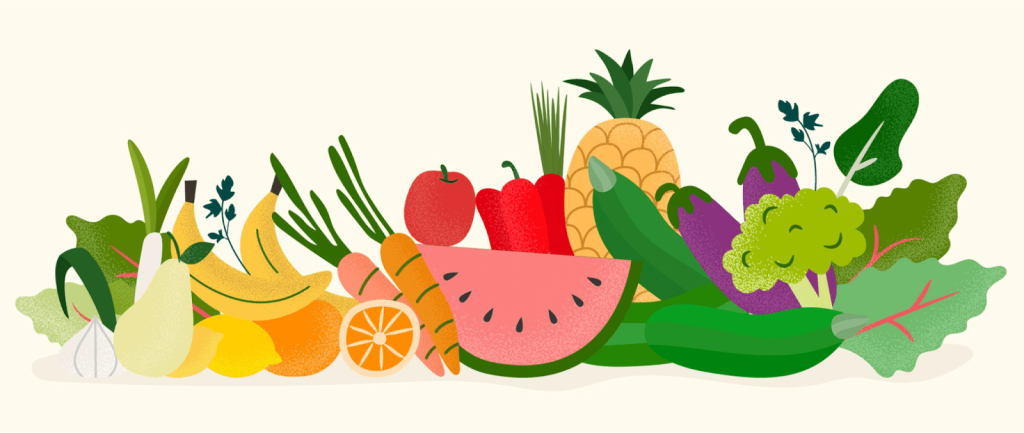
Natural sugars are consumed in their least processed form and can be found in nature. For instance, lactose and fructose, which we spoke about earlier.
Although they are sugars, they still contain vital nutrients that can promote general health. Furthermore, natural sugars and fibre are frequently combined, which helps to reduce the speed at which the sugar affects your blood sugar levels. Basically, they make you feel full for longer after eating.
Here’s a helpful tip: combine fruit with a meal that contains protein to slow down the absorption of the fruit further. Also, fruits are full of vital nutrients that support good health and disease prevention in the body. They also aid in maintaining a steady metabolism.
The verdict? Choose natural sugars over refined sugars whenever possible – they are healthier in every way.
Sugar and Diabetes
So, we’ve all been told at some point in our lives, “Don’t eat so much sugar, you’ll get diabetes”. But can sugar consumption really lead to diabetes?
In the case of Type 1 diabetes, the answer is no. Because it occurs when the immune system destroys the insulin-producing cells in your body. This is not affected by your sugar consumption.
When it comes to Type 2 diabetes, the answer is less black and white. Although researchers are sure that sugar cannot directly cause Type 2 diabetes, you are at a higher risk of developing it if you’re overweight. Weight gain is often a result of an unhealthy diet high in sugary foods or carbs.
Let’s break this down for you.
Consuming too much sugar causes the body to store more fat. This increased fat storage causes the body to resist the effects of insulin, especially inside the liver and around internal organs. As a result, the pancreas must produce more insulin to keep the blood glucose levels within a normal range.
Type 2 diabetes will develop if this process of rising blood sugar is allowed to continue because the pancreas will eventually be unable to keep up with the rising insulin production.
How Sugar Affects Your Weight
Are “empty calories” in sugar a real thing?
Yes, when it comes to refined or added sugars, they have little to no nutritional value. Instead, they cause weight gain because of the high calories they contain and usually don’t satisfy your hunger either. This means that if you choose a chocolate bar as a snack, you will most likely feel hungry soon after and eat again.
Ultimately, you’re eating extra calories and denying your body the nutrition it could get from an apple or grapes (which also contain sugar but are always the healthier option)!
Can you put on weight by eating natural sugars? When eating fruits, weight gain won’t be a problem as long as you stick to high-fibre fruits like apples and pears. They will be more filling and result in fewer blood sugar fluctuations, which can affect appetite and metabolism. It is generally recommended that you eat fewer bananas and mangoes if you’re trying to lose weight since they are higher in calories.
Bottom line? Excessive consumption of refined sugar will lead to weight gain, so if your health goal is to shed extra kilos but you can’t give up sweet foods entirely, sticking to natural (healthy) sugars is the way to go.
How Sugar Affects Your Liver
Small amounts of fructose from natural sources, such as the sugar in fresh fruit, can be easily converted by a healthy liver into glycogen and then stored until the body needs it. This form of glucose that is stored in the body is known as glycogen, which the body can easily convert into energy.
When the liver fills up with glycogen from consuming too much refined sugar, things start to get a little complicated. If you eat too much sugar, fructose levels rise, and the liver ultimately converts them into fat.
Unfortunately, this can have the same damaging effects as alcohol and lead to something called non-alcoholic fatty liver (NAFLD). This is an accumulation of fat in the liver which results in inflammation and can cause liver damage if left untreated.
Sugar Can Lead to Inflammation in the Body
You might have heard doctors tell arthritis patients to limit their sugar consumption. This is because sugar can cause inflammation, leading to more pain in someone with arthritis.
Another unfortunate but often overlooked effect of excessive sugar consumption is skin inflammation. This can take various forms like dermatitis, acne or psoriasis. Your skin might also start looking dull or age quicker due to unhealthy sugar consumption; this is because artificial sugars can affect the skin’s elasticity, causing wrinkles.
So, the next time you consider reaching for the second slice of cake after dinner, ask yourself – is this worth ageing faster?
Is Sugar Really Addictive?
A few years ago, a research study published in the British Journal of Sports Medicine suggested that sugar could be considered an addictive substance and that it might even be as addictive as cocaine.
While medical experts claim that sugar can be harmful to health, not many believe it can be considered on par with a drug of abuse.
There continues to be a lot of debate around the addictive properties of sugar and how it affects the brain. For those of us who love sweets, eating a cupcake or plain old chocolate bar is a common tendency when we’re stressed. But, unfortunately, sugar is to sweet lovers what nicotine is to smokers.
Here’s Why:
Sugar influences the brain’s reward system and triggers the release of dopamine – a chemical in the brain that reinforces behaviors that result in rewards.
If you’ve ever tried to go off sugar, you’ve probably realized how tough it can be. This is because, when we consume sugary foods, it leads to a ‘feel good’ sensation in the brain. When you eat sugar, the same brain region stimulated by alcohol consumption lights up, according to brain scans taken while eating sweet foods. You start craving more sugar as a result.
Have You Ever Thought About What Would Happen to Your Body if You Completely Cut Out Sugar?
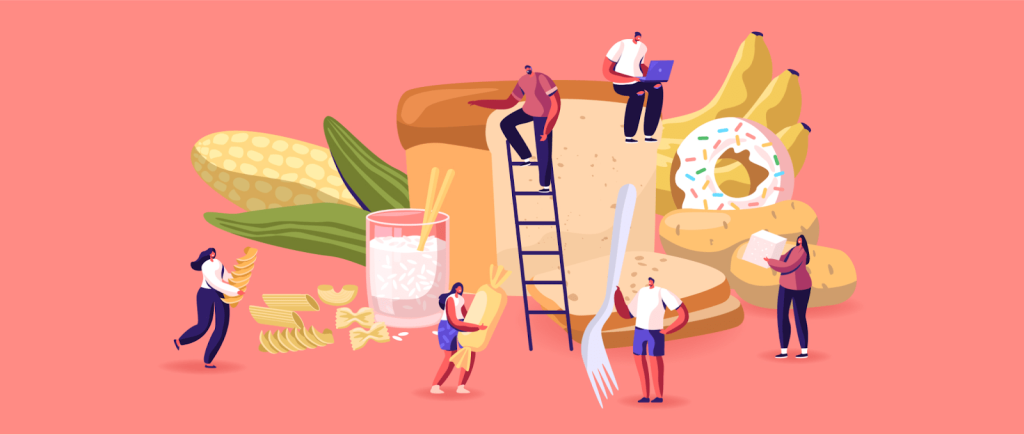
The truth is that it is practically impossible to stop consuming sugar completely. This is because all carbohydrates break down into sugar after we eat them.
Carbs are converted into glucose and transported throughout the body and brain to provide energy. So, even if you’re on a ‘sugar-free’ diet, your body and diet will most likely contain some sugar.
Once you reduce your sugar intake significantly, here are some changes you can expect:
Firstly, you might experience a difficult transition if you’ve been regularly consuming sugar for several years. In the first couple of weeks, you will also notice a change in your mood; increased lethargy, irritability, and headaches are common and immediate aftereffects.
After about two weeks, your energy levels will improve, so it’s worth sticking to a ‘sugar-free’ diet. Cutting out sugar may also improve the quality of your sleep, and you will start to experience deeper sleep in a few weeks.
This is since foods high in refined sugars reduce the quantity of both rapid eye movement (REM) sleep, which is the dream phase of sleep, and slow wave sleep (SWS), the restorative sleep that aids in consolidating memories and information learned throughout the day.
In addition to reducing inflammation of the skin and other body parts, you are most likely to lose weight when you eliminate sugar from your diet. This is because the fat stored in your body will gradually decrease.
How Do I Read Food Labels for Sugar

Given that many foods contain added sugars, you might not be aware of the actual amount of sugar you consume. To determine how much sugar you eat, carefully read ingredient lists and labels on packaged foods.
Even if the front of the package talks about the product being a ‘healthier’ or low-calorie, low-fat option, it’s beneficial to go through the ingredients list on the back of the packaging. Why? Because the front of the package is essentially a marketing initiative aimed at selling the product.
The actual list of ingredients will give you a much clearer picture of what you’re putting into your body.
Look for words ending in “-ose”, and the following terms in the ingredients and nutritional information on packages to identify them:
• Glucose
• Evaporated cane juice
• Corn syrup
• Cane sugar
• Dextrose
• Fruit juice concentrates
• High-fructose corn syrup
• Lactose
• Crystalline Fructose
• Maltose
• Sucrose
• Corn sweetener
• Fructose
Additionally, here’s a quick guide on how to read different labels on processed foods:
• Natural: This does not imply that the product is made of natural ingredients. It may signify that the manufacturer, at one point in the manufacturing, used a natural source, such as apples.
• No added sugar: Even though the label says this, it’s possible that sugar substitutes may also have been added.
• Organic: This label does not tell you much about whether the product is healthy. For instance, organic sugar is still sugar.
• Low-fat: This label typically indicates that the fat has been decreased at the expense of increasing the sugar.
Remember, sugar doesn’t have to be the enemy since it ultimately depends on how much you eat and from what source.












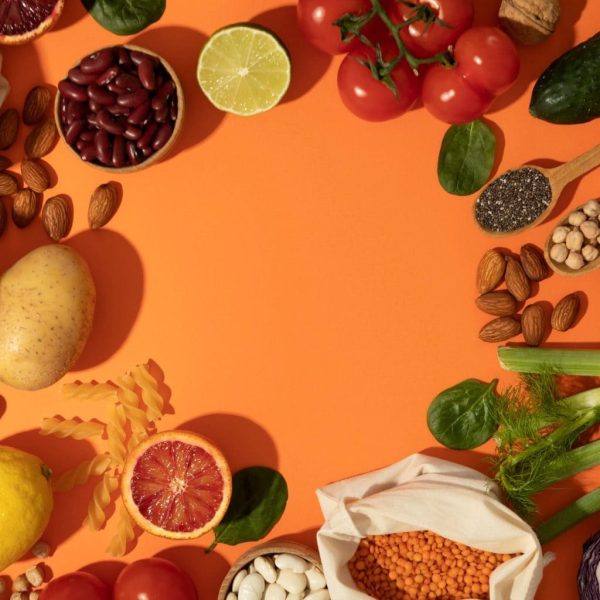








Share this article